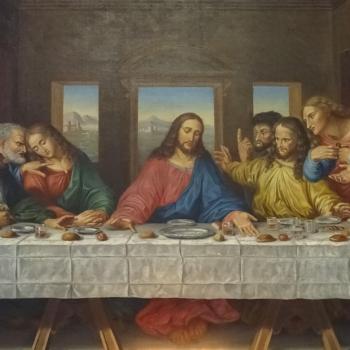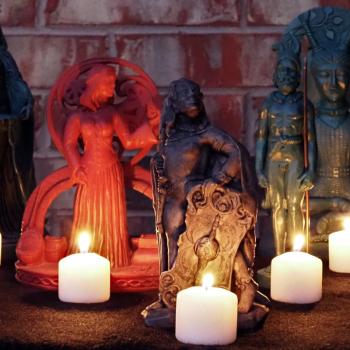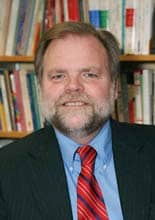The refrain of a children's song I sing with my grandson goes: "Every little soul must shine, must shine, must shine; Every little soul must shine, must shine, must shine." These are apt words for All Saints and All Souls Days, celebrated November 1 and 2, respectively. Traditionally, All Saints (All Hallows) honors all the saints, known and unknown, who now enjoy the beatific vision, or communion, with God. All Souls Day embraces all of the faithful deceased who are in the process of achieving perfect communion with God. While few people today affirm the doctrine of purgatory, or the purification of the departed faithful, historically connected with All Souls Day, both All Saints and All Souls can be embraced as days of affirmation and commitment by postmodern seekers and people of faith.
All Souls Day is an opportunity to remember deceased loved ones and honor the One who loved them into life and received them in death. All Souls Day reminds us that the veil between this life and the next is often quite thin. Our prayers radiate beyond this lifetime, bringing greater light to the post-mortem journeys of our loved ones. Conversely, in the interdependence of life, the prayers and energies of deceased beloved friends and family members may support us on our earthly pilgrimages.
I must confess that I am a universalist when it comes to the afterlife. While I do not believe that we are perfected at death, I believe that God will heal and transform all creation and that all people will eventually find wholeness in God's holy adventure beyond this lifetime. Death does not end the human adventure, nor does it terminate God's love for us. The afterlife is a time of personal and relational evolution.
Over the years, many grieving parents have asked some version of the following question—"Where is Susie now?"—as they sought to come to terms with an adult child's suicide. My response has always been, "Susie is in God's hands. God's love for her did not cease at the moment of death." The same, I believe, applies to all whom we call "unbelievers." Death does not limit God's care. God's care continues in another dimension luring us forward from isolation to community, brokenness to healing, sorrow to consolation, and sin to grace. Even those who appear to run away from God in this lifetime will eventually run into the arms of the ever-loving, ever-pursuing God. The God who seeks our wholeness in this lifetime continues the process of soul-making beyond the grave.
What some call the beatific vision is, I believe, an evolutionary process. Beyond the grave, we continue to grow in wisdom and stature. We forgive and are forgiven. We experience the healing of memories and relationships and continue to explore paths not taken in companionship with God. This applies to saints as well as mere mortals. A life of saintliness is a life of adventure and growth, dissatisfied by any static heavenly vision. We continue the journey, freely and creatively responding to the grace that leads us toward wholeness.
All Souls' Day provides us with the opportunity to give thanks—as well as forgive—those imperfect but loving persons who have shaped our lives. This year, I give thanks for the love of my parents and my brother Bill, for Alice and Jack, for my dear friend Wendy, and countless others whose love supported my journey. Death cannot sever our connections with loved ones. Whatever is loved lives on forever not only in our hearts but in God's healing memory and everlasting creativity.
All Saints Day is a time for both gratitude and inspiration. We are all saints in the making. We don't need to be canonized to be faithful to God or to make a difference in God's realm. We can be faithful to God, aligned with God's vision in this lifetime and continue to grow in grace beyond the grave. The stories of others inspire us to become souls of stature and love—little Christs and mahatmas (great souls)—in the here and now. We all can choose to be Christ-like or take the Bodhisattva's vow of compassion, whether or not we believe in reincarnation. We can vow to be Gods' partners in transforming the world. In my mind, this is what it means to be a saint!
A whimsical children's hymn from Great Britain, popular in the North American Episcopal churches, describes this saint-making process.
I sing a song of the saints of God,
Patient and brave and true,
Who toiled and fought and lived and died
For the Lord they loved and knew.
And one was a doctor, and one was a queen,
And one was a shepherdess on the green;
They were all of them saints of God, and I mean,
God helping, to be one too.





